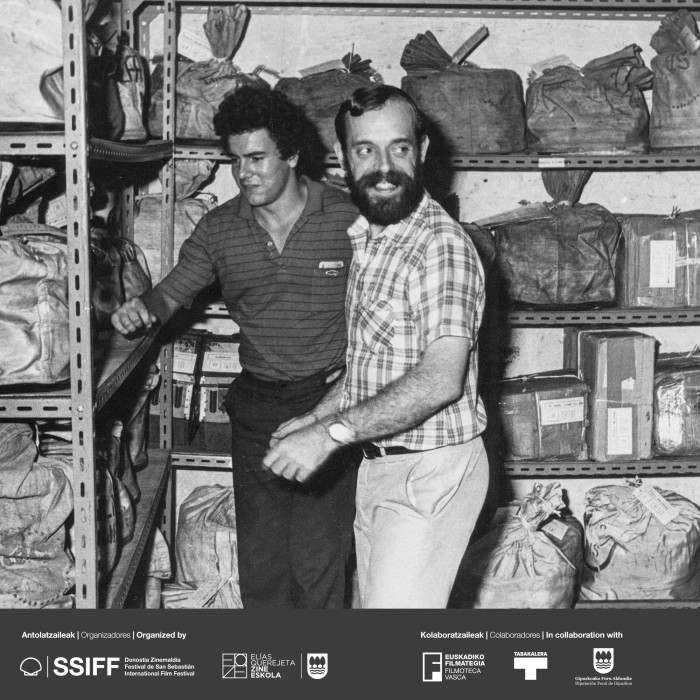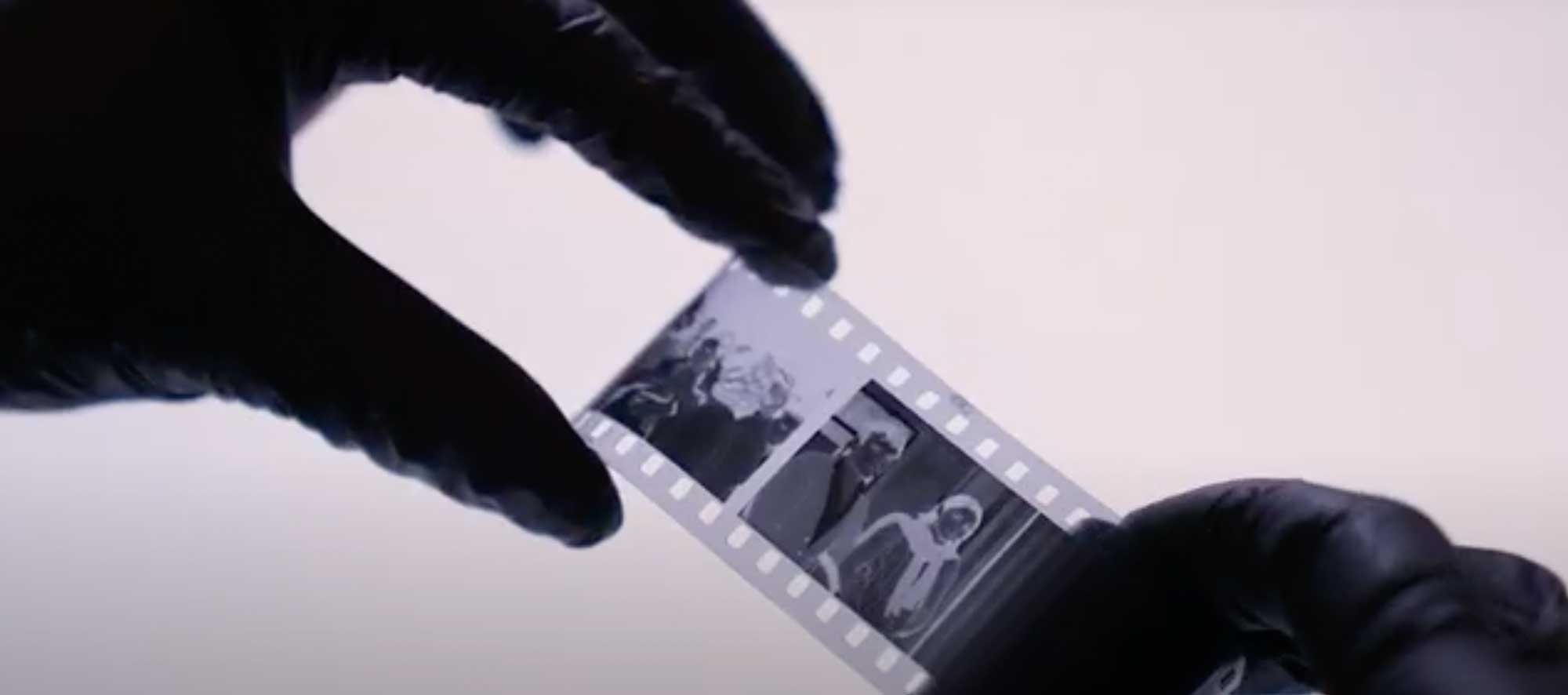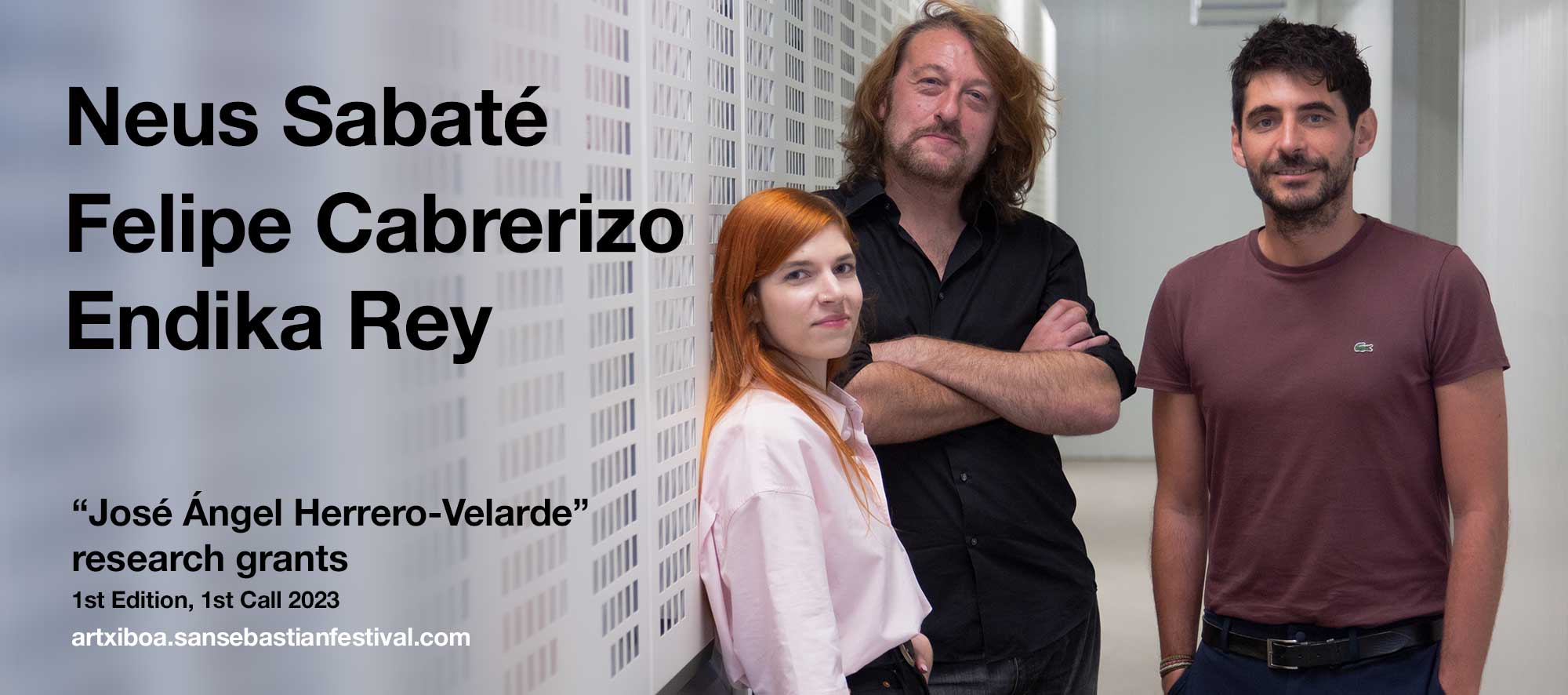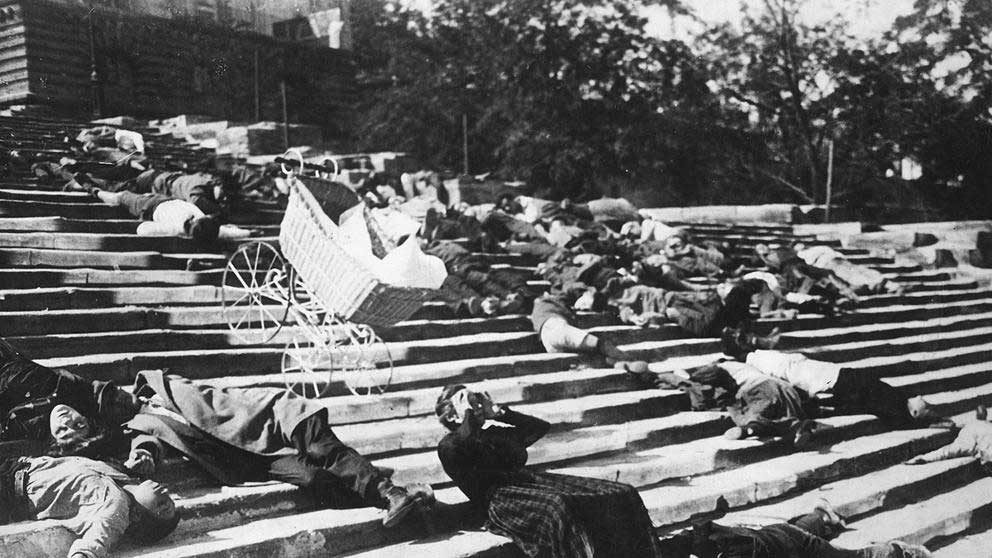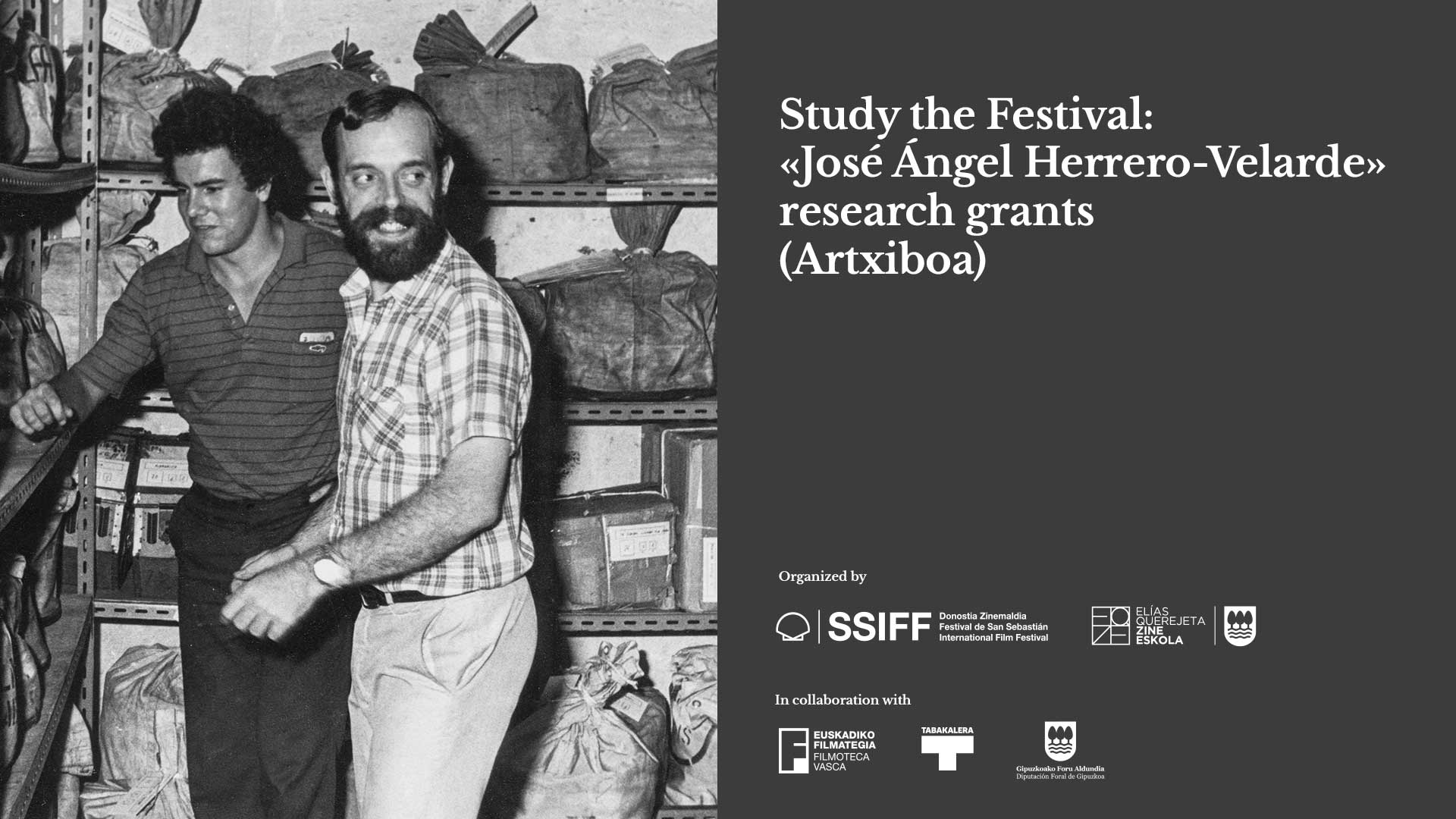A public day will take place on 22 June, including a tour of the archive, presentation of the first research works carried out under the grants and the screening of ‘Battleship Potemkin’
The second edition of the José Ángel Herrero-Velarde research grants given by the San Sebastian Festival and the Elías Querejeta Zine Eskola (EQZE) will support the works of Harri X. Fernández, Carlos F. Heredero and Sonia García López, respectively concentrating on the historical presence of animated films at the Festival, on the event's relationship with the New Spanish Cinema of the 60s and on the holding during that same decade of the International Meeting of Film Schools.
Thanks to the backing of the Department of Culture of the Provincial Council of Gipuzkoa, the José Ángel-Herrero-Velarde grants were launched in 2023, when they were divided into two calls: one for researchers from Gipuzkoa and the other for those from all over Spain. This year, precisely on 22 June, Tabakalera will host a public day to present the three studies carried out under the first call (by Felipe Cabrerizo, Endika Rey and Neus Sabaté), together with a guided tour of the Artxiboa facilities and the screening of Battleship Potemkin (Sergei Eisenstein, 1925).
From 2024, the grants will have a single annual call for three researchers, at least one of whom must have been born in Gipuzkoa or be registered as a resident in the province. The goal of these grants is to promote research into the Festival's historical archive by means of generating new academic texts taking the archive as their main source and enabling a look back at the event in days gone by while maintaining an ongoing dialogue with its present and future.
Last month, a committee made up of Festival and EQZE members decided the three research grants for 2024. Said committee selected the proposals from Fernández, García López and Heredero "for their plural approach and the fittingness of their subject matter and methodology, their contribution at theoretical level to the study of film festivals and to the knowledge of films nationally and internationally and their use of the Festival archive as their primary source".
2024 research works
The proposal by the journalist from Gipuzkoa Harri X. Fernández will endeavour to "trace, quantify and highlight the importance of animated movies" at the Festival in a period of time starting with the competitive screening of Walt Disney's now classic One Hundred and One Dalmatians (1961) and continuing until El sueño de la sultana (Sultana's Dream, 2023) the feature film by Isabel Herguera, a competitor in last year's Official Selection. The researcher from San Sebastian will also compare the experience of the city's festival with that of other non-specialised European festivals.
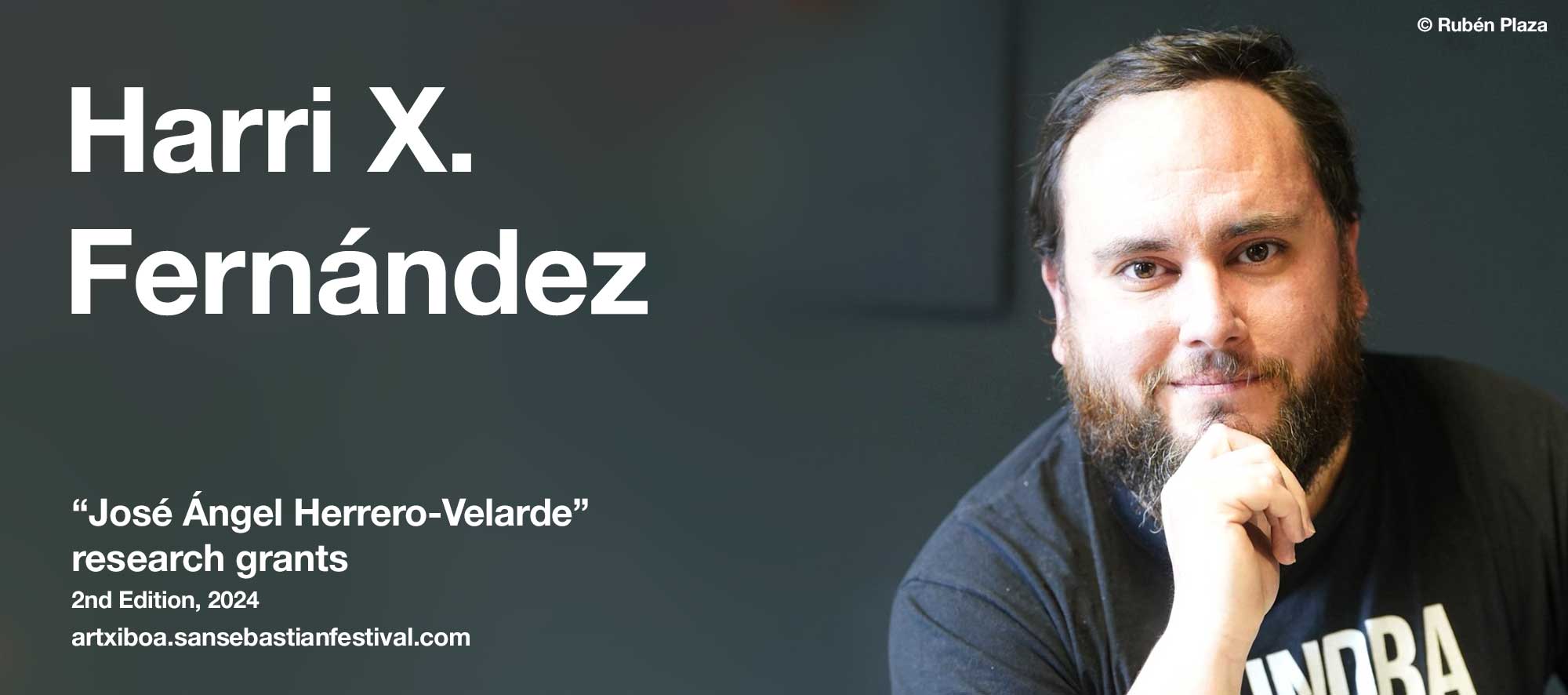
Sonia García López, lecturer at the Carlos III University in Madrid, will address the background of the International Meeting of Film Schools, running from 1960 to 1966, as part of the San Sebastian Festival. Her objective is to "clarify" to what extent those meetings, spaces affected by censorship, "were also places for dissidence, gathering and exchanging ideas and to what extent parallels and connections can be drawn between the experience of the meetings and the subsequent student movements with their widespread political implications" such as "the unrest of May '68 in the national and international context".
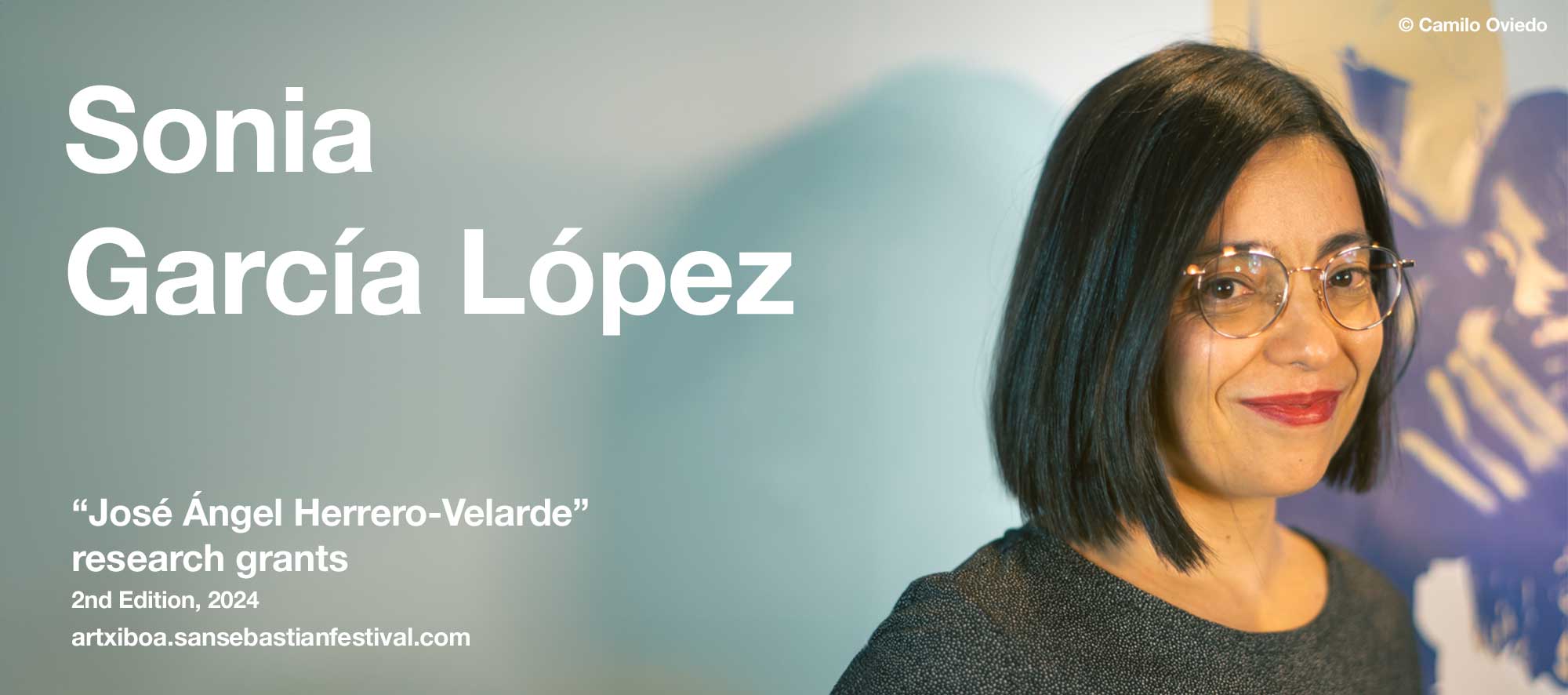
For his part, the historian and film critic Carlos F. Heredero aims to "make an X-ray of relations between the flourishing New Spanish Cinema of the 60s and the Festival". His hypothetical basis, focused on the presence enjoyed by the films of this movement at San Sebastian, is that "the San Sebastian Festival started out as the midwife, continued as discordant loud speaker kept in check by censorship, later served as a mirror obliged by circumstances and, finally, became the registrar of the rise and fall of that impulse troubling the waters of Spanish cinema during said decade".
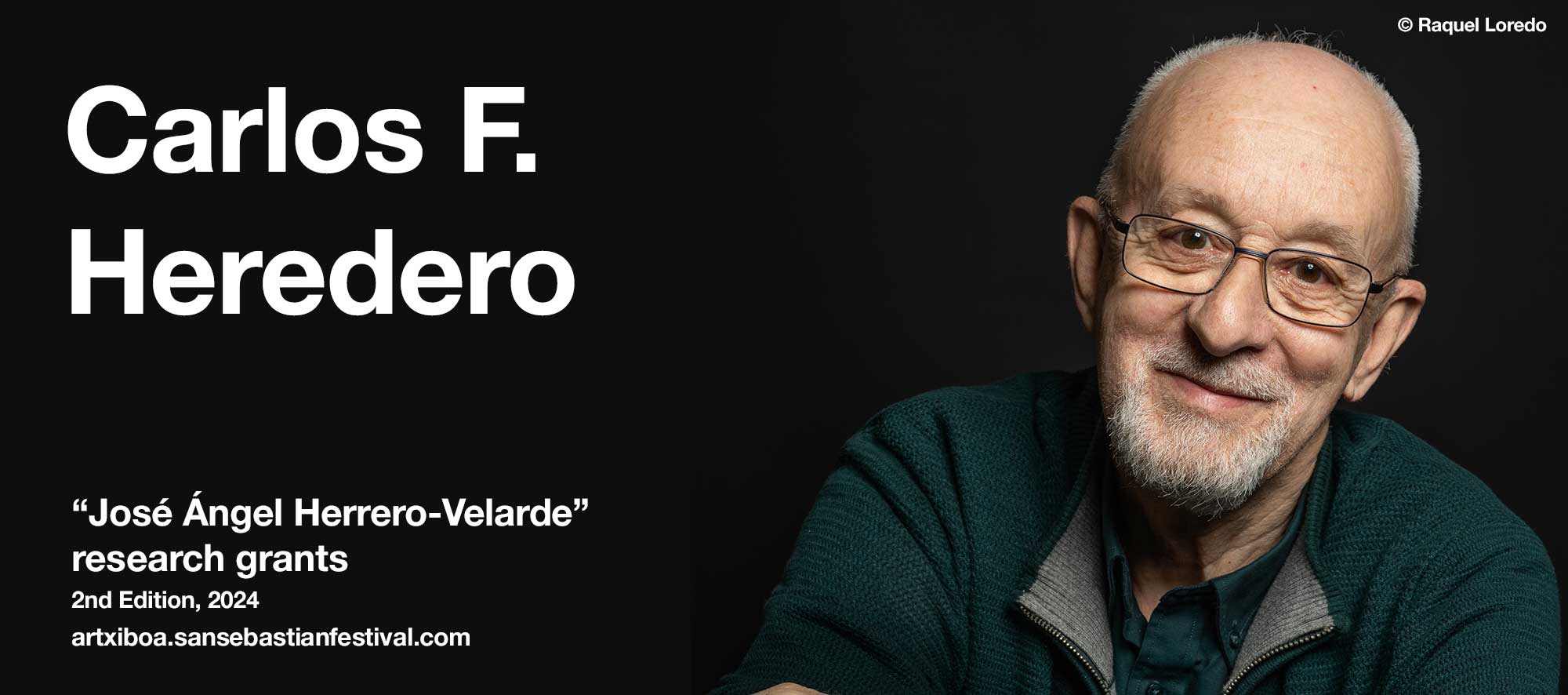
The research grant gives two weeks of access to the Artxiboa facilities, housed in the Tabakalera building, home of all of the materials in the Festival's historical archive. The selected participants will be assigned a work and consultation space in the Basque Film Archive premises and will also have the option of access to the cinematic collections and archives of the building as well as the possibility of attending movie screenings, workshops and masterclasses, among other activities. They will also receive a grant of 3,500 euros, travel and accommodation costs, and a per diem for the days of their stay.
22 June:
public tour of Artxiboa, talks and screening
On Saturday 22 June, Tabakalera will host a public day jointly organised by the Department of Culture of the Provincial Council of Gipuzkoa, the EQZE and the Festival which, with the title of Study the Festival: the José Ángel Herrero-Velarde research grants, will explain the work carried out by Artxiboa. In the morning, the archive facilities will open to the general public for the first time in an experience to be repeated in the future and which is intended for residents of Gipuzkoa. Places are limited, meaning that those wishing to attend the guided tour must register beforehand.
At 17:00, the Tabakalera cinema will host a seminar to explain, also for the first time, the results of the research work carried out under the José Ángel Herrero-Velarde grants. Irati Crespo, coordinator of Artxiboa, will introduce the works of Felipe Cabrerizo, Neus Sabaté and Endika Rey, who will respectively talk about film productions from the countries socialist orbit at the Festival, the reunion in San Sebastian between Josefina Molina, Pilar Miró and Cecilia Bartolomé, and relations between the event and the feature films by new moviemakers. In their presentations, the speakers will use documentation from the Festival archive, unseen to date. Entry is free until all places are taken; however, an invitation must be requested beforehand from the Tabakalera website or information point.
Finally, the film Battleship Potemkin will screen at 19:00, for which a ticket must be acquired. The showing of this unquestionable Soviet classic is rather special, given that it will be the first time ever that it will have been programmed by the San Sebastian Festival. Eisenstein's feature film was cut by censors in 1959 from a programme entitled Analytical course of the best films according to Brussels 58; it was also missing from the 1978 retrospective Films we didn't see in recent decades. A new copy digitally restored by the Deutsche Kinemathek will be screened.
SEMINAR 'STUDY THE FESTIVAL:
THE JOSÉ ÁNGEL HERRERO-VELARDE' RESEARCH GRANTS (ARTXIBOA)
- 17:00-17:15: Introduction (Irati Crespo).
- 17:15-17:40: Talk A window open to the East: the entrance to Spain of movies from the Soviet orbit through the San Sebastian Festival (Felipe Cabrerizo).
- 17:40-18:10: Talk Ripples of the reunion between Josefina Molina, Pilar Miró and Cecilia Bartolomé (Neus Sabaté).
- 18:10-18:35: Talk New directions: New Filmmakers at the San Sebastian Festival (Endika Rey).
- 19:00: Screening of Battleship Potemkin (Sergei Eisenstein, 1925) + introduction by Felipe Cabrerizo.
JOSÉ ÁNGEL HERRERO-VELARDE
RESEARCH GRANTS
- Harri X. Fernández: And who animates this festival? Approach to and contexts of the presence of animated films at generalist European festivals in the 20th and 21st centuries: the case of Zinemaldia, of its 101 barks to the Basque feminist utopia.
- Sonia García López: Seeds for revolt: the International Meeting of Film Schools (1960-1966).
- Carlos F. Heredero: Mirror to mirror. New Spanish Cinema and the San Sebastian Festival.
Second call
- Minerva Campos: San Sebastian International Film Festival's 'A' category at risk: negotiations with the FIAPF and cinematic diplomacy (1953-1985).
- Aida Vallejo: Meetings at the Zinemaldia. A sociocultural history of the San Sebastian Festival through its spaces.
- Violeta Kovacsics: The movies of the Transition and the San Sebastian Festival.
First call
- Felipe Cabrerizo: A window open to the East: the entrance to Spain of movies from the Soviet orbit through the San Sebastian Festival.
- Neus Sabaté: Ripples of the reunion between Josefina Molina, Pilar Miró and Cecilia Bartolomé.
- Endika Rey: New directions: New Filmmakers at the San Sebastian Festival

